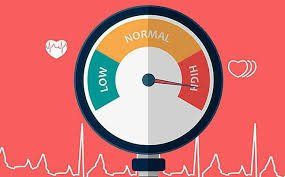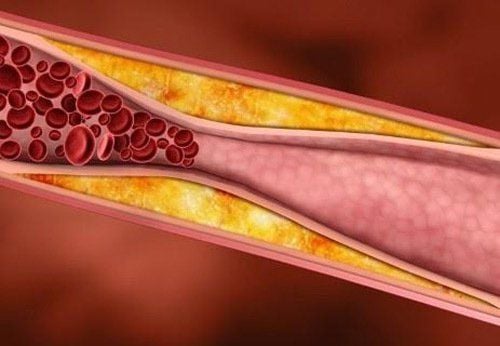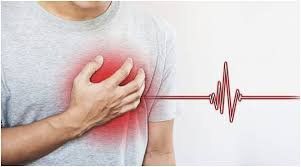This is an automatically translated article.
The article was professionally consulted by BSCK II Nguyen Quoc Viet - Interventional Cardiologist - Department of Medical Examination & Internal Medicine - Vinmec Danang International General Hospital.Cardiovascular diseases include: Vascular diseases such as coronary artery disease, myocarditis, arrhythmias and heart failure. Cardiovascular disease appears silently but leaves many serious consequences for the health and life of the patient.
1. High blood pressure
High blood pressure (or hypertension) is a chronic disease where the pressure of the blood against the walls of the arteries is too high. High blood pressure puts a lot of pressure on the heart (increases the burden on the heart) and is the cause of many serious cardiovascular complications such as: stroke, heart failure, coronary heart disease, myocardial infarction. heart,...
High blood pressure is a chronic disease that occurs when the blood pressure on the artery walls is higher than normal. According to the guidelines for the treatment of high blood pressure of the Ministry of Health in 2010, hypertension is defined as when the systolic blood pressure is > 140 mmHg and/or the diastolic blood pressure is >= 90 mmHg.
Most adult high blood pressure has no known cause (primary hypertension), with only about 10% of cases having a cause (secondary hypertension). The cause of high blood pressure can be discovered through history taking, physical examination, and routine laboratory findings. Some cases of high blood pressure that need attention to find the cause include: hypertension at a young age (<30 years), resistant hypertension, advanced or malignant hypertension.
>> Customers can refer to the high blood pressure checkup package at Vinmec International General Hospital.
Trắc nghiệm: Bạn có hiểu đúng về huyết áp cao không?
Huyết áp cao còn được gọi là kẻ giết người thầm lặng vì bệnh thường không có triệu chứng. Thiếu hụt kiến thức về huyết áp cao có thể làm cho tình trạng bệnh trở nên trầm trọng hơn. Dưới đây là những câu hỏi trắc nghiệm vui giúp bạn hiểu đúng về bệnh cao huyết áp.2. Heart valve disease
Heart valve disease occurs when one or more heart valves do not function properly to allow blood to flow in one direction. There are two common types of valvular heart disease, which are regurgitation and stenosis.Heart valve stenosis: When the valve leaves are no longer soft, thickened or adhered to the edges of the valve, limiting the ability to open and hinder the flow of blood through it. The heart has to pump harder to force blood through the narrowing. Heart valve regurgitation: When the valve cannot close properly, causing some of the blood to back up into the previously pumped chambers of the heart. Valve regurgitation is usually caused by a retraction, degeneration or dilation of the annulus, or an excessive length of the valvular ligament, or a rupture of the suspensory ligament of the heart valve. When the valve is regurgitated, the heart has to work harder to compensate for the loss of blood volume due to reflux and to process the excess blood volume for the next contraction. In some cases, valvular disease may present with a combination of stenosis and regurgitation and disease of more than one heart valve in the same patient.
3. Atherosclerosis
The arterial system is responsible for transporting blood from the heart, carrying a lot of oxygen and nutrients to the body. Over the years, fats, cholesterol and other substances are deposited on the walls of blood vessels (called atheroma) causing narrowing of the lumen, impeding blood flow. That's called atherosclerosis.Atherosclerosis can occur in many vascular systems such as: carotid, coronary, lower extremity vessels... and cause many related diseases. Atherosclerosis is a gradual process that begins at a young age. The age at which atherosclerotic events occur is gradually getting younger. The exact cause of the disease is still unknown, but many factors are known to contribute to the formation of atherosclerotic plaques. The onset of atherosclerotic plaque formation may be due to damage to the vascular endothelium. Several factors can cause damage to the endothelium of blood vessels such as: High blood pressure, high levels of lipids in the blood, smoking, high blood sugar.

4. Myocardial ischemia
Myocardial ischemia (also known as myocardial ischemia) is a disease that occurs when blood flow to the heart is reduced, causing the heart to not receive enough oxygen needed for the contraction and ejection of the blood. Reduced blood flow to the heart is the result of a partial or complete blockage of the branches of a heart artery (coronary artery). Myocardial ischemia reduces the pumping ability of the heart, causing damage to the heart muscle, in many cases leading to arrhythmias and myocardial infarction. The sudden blockage of the coronary artery can cause a myocardial infarction. The cause of cardiac ischemia is mainly coronary atherosclerosis, accounting for more than 90%.Some patients with ischemic heart disease have no symptoms. However, when signs and symptoms do appear, the most common is pain in the chest area, usually the left side of the body (angina). In addition, the symptoms of ischemic heart disease may be easier to recognize, including: pain in the neck or jaw, pain in the shoulder or arm, rapid heart rate, shortness of breath with physical activity, nausea, and vomiting. vomiting, sweating, fatigue.
5. Myocardial Infarction
Myocardial infarction occurs when there is a sudden complete or partial occlusion of one of these two blood vessels or both. If an area of the heart muscle dies due to ischemia, then the heart's pumping function is no longer as complete as before, causing consequences such as heart failure, cardiogenic shock, sudden cardiac death,...Common causes The most common type of myocardial infarction is atherosclerosis. This condition occurs because atherosclerotic plaque accumulates over time and adheres to the walls of blood vessels, the composition includes cholesterol, calcium, cell debris.
From about 30 years old, in the patient's body begins the process of forming and developing atherosclerotic plaque. This process takes place from a few years to several decades.
In subjects with a number of risk factors such as high blood pressure, smoking, dyslipidemia, diabetes contribute to vascular damage over time. It is these disorders that make the walls of blood vessels more susceptible to cholesterol molecules to be deposited and adhered to.

6. Myocarditis
Myocarditis is a disease that occurs when the heart muscle is inflamed by infectious factors, chemicals or many cases of unknown cause. The disease can occur in even healthy people without heart disease. The disease causes a high rate of sudden death if not detected and treated promptly. The cause of myocarditis is due to the invasion of viruses that attack the body, especially the Coxacki virus, due to the use of certain drugs or chemicals, an increase in thyroid hormone.People with early-stage cardiomyopathy often have no signs and symptoms. When the condition is advanced, signs and symptoms appear including: shortness of breath, cough, fatigue, chest pain, leg swelling, high blood pressure, dizziness...
Myocarditis will cause sudden death and can occur in healthy people without pre-existing heart disease.
7. Heart failure
Heart failure is a medical condition in which the heart is weakened and cannot complete its normal function of pumping blood to the body (a workload compared to a normal person's heart and the efficiency of pumping blood away). nourishment of organs in the body is reduced). Patients with heart failure always face cardiovascular events.The patient's heart failure level is assessed based on functional symptoms and exercise capacity, divided into 4 levels:
Heart failure grade 1: Considered as latent heart failure, the patient still has able to exercise and do normal activities, without any signs of shortness of breath, fatigue or chest pain. It is difficult to detect heart failure at this latent stage. Heart failure grade 2: Mild heart failure, when resting, the patient does not feel any symptoms, but when exercising, he notices shortness of breath, fatigue and palpitations. These signs may be transient or too mild for the patient to be considered pathological symptoms of Grade 3 Heart Failure: Moderate Heart Failure. At this stage, the patient is quite markedly restricted in movement and daily activities. At rest, the symptoms subside, but with strenuous exercise there is severe shortness of breath, gasping, fatigue, palpitations. The patient at this time began to feel anxious and went to the hospital for a checkup. Therefore, treatment usually begins in stage 3 of heart failure Grade 4 heart failure: Severe heart failure. The patient feels tired all the time, is almost unable to do any physical activity, daily activities become very difficult and can only do light tasks, shortness of breath. appear even at rest. Patients need to be hospitalized more often. >> Customers can refer to the package of heart failure examination at Vinmec International General Hospital.
Most heart problems can be treated with medication, intervention or repair or replacement surgery. Depending on the cause and symptoms of the disease (fatigue, shortness of breath, chest pain), your doctor will choose the right treatment for you. To prevent disease, you need to keep your body healthy. When you are tired, you must check your heart immediately, do not work too hard, do not expose to chemicals. In particular, when hyperthyroidism goiter needs to be treated thoroughly.
Vinmec International General Hospital is one of the hospitals that not only ensures professional quality with a team of leading medical professionals, modern equipment and technology, but also stands out for its examination and consultation services. comprehensive and professional medical consultation and treatment; civilized, polite, safe and sterile medical examination and treatment space.
Doctor Nguyen Quoc Viet has more than 20 years of experience in the examination and treatment of cardiovascular diseases and Cardiovascular Interventions (Including angiography, dilation, stenting of coronary arteries, renal arteries...), placing temporary, permanent pacemaker... Before working at the Department of Medical Examination & Internal Medicine, Vinmec International General Hospital Da Nang, the doctor used to work for a long time at Da Nang Hospital.
Please dial HOTLINE for more information or register for an appointment HERE. Download MyVinmec app to make appointments faster and to manage your bookings easily.














